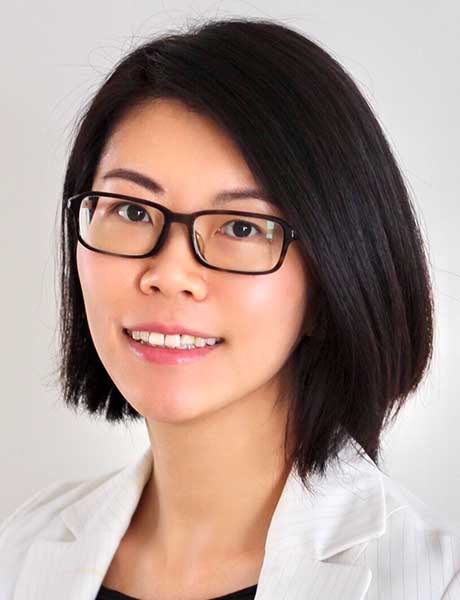By Jade Chen MACN
Nursing placements may be rescheduled or postponed for a variety of reasons. The prolonged waiting time to complete the placements can stress students, especially during the already stressful COVID-19 pandemic. For example, I was supposed to have a four-week placement in February 2022. However, due to the Omicron outbreak in early 2022, the hospital and health service I belong to were short-staffed, leading to the rescheduling of my placement until March.
We all want to stay healthy and be fit for placement, since being sick or catching COVID-19 could further prolong the process of completing our studies. So how can we ensure we stay safe and make our time meaningful while waiting for our placement? Here are some helpful tips for self-empowerment and being safe while waiting.
1. Research the clinical knowledge required for your upcoming placement
Clinical knowledge is essential to support the clinical reasoning cycle, which guides the decision-making process for clinical problem-solving. Nursing textbooks illustrate clinical knowledge systematically. Our patients may have complex medical histories and multiple health care needs in the real world. Using this downtime to research the nature of the ward and review the clinical knowledge required for your upcoming placement will help orient yourself when you first start placement.
2. List a few learning goals to kick start the first week of your next placement
Psychologists have found that goal setting is an effective strategy to guide or facilitate behaviour change (Bailey, 2019). I have been using the “Check-in and Check-out process” for lab and clinical practice that was outlined by Henderson et al in the 2018 study Students take the lead for learning in practice: A process for building self-efficacy into undergraduate nursing education (Henderson et al., 2018). The “Check-in” part serves as a self-briefing process that includes anticipation and goal setting before the commencement of the clinical practice. The “Check-in” process increases my awareness of learning. It reminds me to achieve my learning goals during the busy shifts, such as improving IV medication administration skills or increasing efficiency in providing a bedside handover. By preparing learning goals, we take the initiative in studying, developing self-efficacy, and developing confidence in our communication skills with our Registered Nurse (RN) supervisors and Clinical Facilitator. We can tell our RN supervisors and Clinical Facilitator what we would like to achieve each shift, thus creating learning opportunities to enhance our clinical nursing practice.
The “Check-out” part is a debriefing process that guides reflection and evaluation of the clinical experience and performance. By reflecting on what went well, what I could do better and what is my next goal through verbal or written communication with my RN supervisors and Clinical Facilitator, I feel that I have more knowledge and experience to take away. On the one hand, I am turning the knowledge into long-term memory. On the other hand, my RN supervisors and Clinical Facilitator could share their perspectives and the alternatives to handle challenging situations. The “Check-out” process not only helps me to consolidate my learning on the floor but also creates an opportunity for ongoing professional conversation with the RN staff at my placement.
3. Find online professional development opportunities
Online professional development is a fantastic and COVID-19 safe way to develop our leadership skills and professional identity to be a nurse. It demonstrates leadership qualities, such as self-motivation and commitment to lifelong learning, and aligns with standards such as Standard 3.3 of the Registered Nurse Standards for Practice (Nursing and Midwifery Board of Australia [NMBA], 2017). Nurses and midwives are required to complete at least 20 hours of continuing professional development (CPD) directly relevant to their context of practice. Familiarising yourself with professional development resources will also assist you in further developing your clinical knowledge.
There are free online professional development platforms like the Australian College of Nursing (ACN) Online CPD, Ausmed, Healthed for Nurses, and Clinical Skills Development Service (CSDS). Most of the membership-based platforms have discount fees for student members, such as the nursing unions of each state and CRANAplus.
4. Networking with nurses who are willing to share and mentor students
A mentoring relationship is a rewarding professional experience that amplifies our personal and professional development (Department of Health, 2004). For undergraduate nursing students, there are accessible resources for establishing a mentoring relationship, such as our university tutors, alumni, learning support liaison, senior colleagues at work, as well as placement supervisors and facilitators. Fresh eyes never hurt. The benefit of being mentored includes practical knowledge of the profession, access to jobs, events, and being encouraged and empowered in personal development.
ACN career mentoring is a fabulous way to assist in developing professional mentorship beyond our university and employment network. You will find mentors across Australia from different nursing fields and career stages. It only costs $5.50 to be a student member to access this service. That is the same price as a cup of coffee!
5. Learn and educate people around you about COVID-19
Registered Nurse Standards for Practice (NMBA, 2017) requires RNs to provide the information and education to enhance people’s control over their health. Student nurses are exposed to concepts of health promotion during their undergraduate programs of study but may not have the opportunity to apply them. There is so much valuable knowledge on respiratory diseases, primary health care and health promotion that you have the unique opportunity to acquire during this pandemic. Examples include information on the Infection Prevention and Control (IPC), PCR (Polymerase Chain Reaction) test and RAT (Rapid Antigen Test) test, PPE (Personal Protective Equipment), and hand hygiene.
From my perspective, during 2021, I began working at my local vaccination clinic, vaccinating on average 50 to 100 citizens per day. However, about 10% of them wear their surgical masks inside-out or upside-down. Hand hygiene is one of the essential activities to help reduce infection transmission. As emerging health professionals, try to educate your friends and family about wearing a surgical mask correctly and how to wash their hands properly. We know it helps prevent contracting the COVID-19 virus.
6. Develop a routine as you will have to for a placement
The nursing placement roster will be different from your everyday routine. Adapt early to a shift work roster by waking up as if you have a morning shift, getting yourself mentally and physically prepared by gathering your equipment, black pen, uniform and fob watch, plus preparing your meals in advance. Importantly learning to care for yourself and communicate with your family before starting the placement will be very helpful to adjust to a full-time nursing lifestyle.
Nursing is a rewarding and valued career. The COVID-19 pandemic addresses the professional identity of nurses but also can make nursing students worry about completing their programs on time. Being healthy and prepared to complete clinical placements enables student nurses to register to practice as a nurse.
*Many thanks to Kaylenne Byrnem MACN, Kay Powell and the Emerging Nurse Leader program for supporting me to publish this article.
Applications are now open for the 2023 intake of the Emerging Nurse Leader Program. You can find out more about the program and experiences like Jade’s or start an application here.
Jade Chen MACN
Jade is a final year undergraduate nursing student at the University of Sunshine Coast (USC) and Stage 1 Emerging Nurse Leader. She is currently working as an Undergraduate Student in Nursing (USIN) at southeast Queensland. She is passionate about safe, effective patient-centred care, work health and safety, and professional development. You can follow Jade’s career journey on LinkedIn.

References:
Bailey, RR. (2019). Goal setting and action planning for health behaviour change. American journal of lifestyle medicine, 13(6), p 615-8. https://www.ncbi.nlm.nih.gov/pmc/articles/PMC6796229/
Department of Health. (2004) Mentoring. https://www1.health.gov.au/internet/main/publishing.nsf/content/404ref.htm
Henderson, A., Harrison, P., Rowe, J., Edwards, S., Barnes, M., & Henderson, S. (2018). Students take the lead for learning in practice: A process for building self-efficacy into undergraduate nursing education. Nurse education in practice, 31, 14-19. https://www.sciencedirect.com/science/article/abs/pii/S1471595317303396
Nursing and Midwifery Board of Australia (NMBA). (2017). Registered nurse standards for practice. https://www.nursingmidwiferyboard.gov.au/Codes-Guidelines-Statements/Professional-standards/registered-nurse-standards-for-practice.aspx





